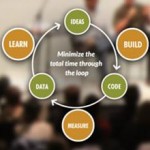 I was at a healthcare event last week and the topic moved on to technology, and in particular what things medics needed before they would consider trying something out. The purpose of the discussion was to build a directory that would provide this information, and things like RCT data, kite marks, reputation and the like.
I was at a healthcare event last week and the topic moved on to technology, and in particular what things medics needed before they would consider trying something out. The purpose of the discussion was to build a directory that would provide this information, and things like RCT data, kite marks, reputation and the like.
The notion was very much that if x,y and z were provided, then the technology would be implemented, and everyone would be happy. Except the evidence suggests that’s far from the truth. The NHS is so far behind the rest of society for a reason. Things like having a consultation over Skype or being able to book your own GP appointment online are seen as cutting edge, when they’ve been available in other parts of our lives for a decade or more.
I’m inclined to think a major part of the problem is the reductionism at play. The culture isn’t one for experimenting with complex environments. Failure isn’t really something that’s allowed for in the system or the processes. Trial and error is not how things are done.
A recent study highlights why that’s a bad approach. It found that guessing an answer to a challenge actually helps our brain to figure out the right answer next time, even if the initial guess was wide of the mark.
It found that you’re more likely to get the right answer having guessed at it previously than if you had taken longer to study it in the first place. The researchers come up with a number of hypothesis as to why this is so.
The first suggests that our first guess is usually in the rough ball park of the right answer, which then aids us subsequently in getting the right answer. The second that the researchers explored was whether by making a false guess to begin with, that makes it subsequently easier to suppress this false information later on.
Alas, neither explanation really stood up to examination, and whilst there is still not a cast iron explanation for why it occurs, the impact did appear to be sustained, with learners retaining the benefits of their initial guess for some time afterwards.
Some researchers believe the phenomenon is down to a guess triggering semantic activation, whereby the mental web of knowledge and facts is activated by the original guess. This in turn makes it easier to store the correct answer once we find it.
“The basic idea is that this [guessing-related] activation … affords a richer encoding of the subsequently presented target,” the researchers conclude.
It all underlines the importance attached to having a go at something, and learning from your attempt. It’s a mentality that I’m not sure the NHS really has, which is perhaps why they remain so behind the curve so often in terms of technology.
Does your own organization have a culture of experimentation?
I quite agree. It's a fantastic way to really accelerate your learning as you can do it non-stop.
I think your articles are great Adi and always look forward to seeing them on Feedly. Keep up the good work mate.